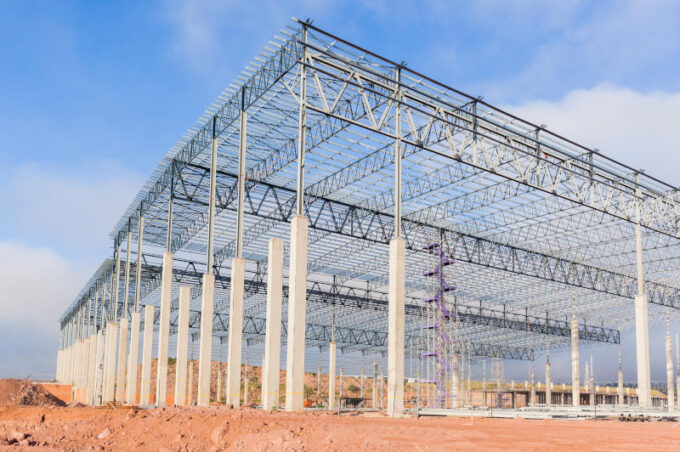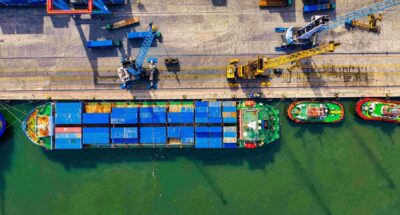
India is ready to play key role in an emerging new world order
Mridul Kumar, India’s ambassador to Switzerland, gives his personal view of his nation’s growing role as a leader in a multipolar world....
Audio available

by Simon J. Evenett Published August 12, 2024 in Geopolitics • 6 min read
But America’s trading partners are less enthused about Biden’s $369bn climate, health and tax bill. German economy minister, Robert Habeck, famously described the IRA as an economic “declaration of war” that would redirect investments to the US in a quest to secure lucrative subsidy awards.
In response, European, Japanese, and Korean policymakers have used the IRA as a pretext to splurge on massive subsidy packages of their own, which has further fueled a global subsidy race that shows no sign of abating. Yet beneath the bluster, the evidence of the impact of the IRA on foreign direct investment reveals some surprising insights.
As the US celebrates the IRA’s second anniversary this summer, here’s a look at how America’s industrial policy rebirth is impacting global investment flows.
America’s trading partners were initially concerned that foreign and domestic firms would redirect investments to the US to benefit from the new subsidies.
The Biden administration has pushed for domestic spending and subsidies as means to revive America’s flagging industrial sectors, particularly in electoral swing states. In August 2022, the US Congress approved the CHIPS and Science Act to use large subsidies to revive the US semiconductor sector. That month also saw Biden sign the IRA, which offers tax breaks and federal spending on a range of domestic priorities, including climate change mitigation. Biden and his administration argue that these subsidies are vital tools needed to enhance American competitiveness and counter China’s state aid programs of unknown size.
America’s trading partners were initially concerned that foreign and domestic firms would redirect investments to the US to benefit from the new subsidies. In response, the European Union and other US allies joined the industrial subsidy race. It was an easy decision for some regions (the EU in particular) because they were already showering their domestic industries with tens of billions of dollars worth of cheap state loans and financial aid.

Yes, but not in the way you might expect. Inward US foreign investment decreased in the year that followed the IRA’s approval. According to data produced by the US Bureau of Economic Analysis, foreign companies invested $148.8bn in the US in 2023. This is 28% down from 2022 and down a whopping 59% from 2021. The data does not clearly indicate whether the US subsidies depressed foreign investment. However, if the subsidies provided by the CHIPS and IRA laws did attract foreign firms to invest in the US, then there must have been some even larger countervailing force that depressed foreign appetite for US corporate assets.
Yes, but the impact is more muted than expected. Foreign financing only accounted for 0.6% of total corporate investment in the US last year, according to BEA data. In 2021, foreign firms spent a total of $7.7bn on new or expanded factories in the United States. That total rose 71% to $13.2bn in 2022 and then fell 6% to $12.4bn in 2023. If this increase was entirely attributable to US subsidies – a big if – then about $10bn worth of additional foreign investment came to the USA over the past two years. Given the size of private sector investment outlays, this is peanuts for the US and its top trading partners.

Investments in new and expanded corporate facilities by foreign firms in all sectors of the US economy during 2023 were estimated to generate just 4,000 jobs. To put that number in perspective, the US economy created 3.1 million new jobs during 2023, according to the US Department of Commerce. European firms created less than 700 of these new jobs.
Corporate executives should look beyond the overblown rhetoric about the impact of US industrial policies when deploying capital. Cultivating an information diet based on evidence of actual foreign investment decisions is the goal, not just announcements and media statements from the C-suite. Evidence-based decision-making and assessment is at a premium when geopolitics, industrial renewal, and the climate transition are used to justify all manner of industrial policy intervention.

Professor of Geopolitics and Strategy at IMD
Simon J. Evenett is Professor of Geopolitics and Strategy at IMD and a leading expert on trade, investment, and global business dynamics. With nearly 30 years of experience, he has advised executives and guided students in navigating significant shifts in the global economy. In 2023, he was appointed Co-Chair of the World Economic Forum’s Global Future Council on Trade and Investment.
Evenett founded the St Gallen Endowment for Prosperity Through Trade, which oversees key initiatives like the Global Trade Alert and Digital Policy Alert. His research focuses on trade policy, geopolitical rivalry, and industrial policy, with over 250 publications. He has held academic positions at the University of St. Gallen, Oxford University, and Johns Hopkins University.

July 1, 2025 • by Mridul Kumar in Geopolitics
Mridul Kumar, India’s ambassador to Switzerland, gives his personal view of his nation’s growing role as a leader in a multipolar world....
 Audio available
Audio available
June 27, 2025 • by David Bach in Geopolitics
Business leaders today should identify their points of leverage – be it public influence, economic power, or industry collaboration – to quietly but effectively push back against policies that undermine democracy, said...

June 26, 2025 • by Ngozi Okonjo-Iweala in Geopolitics
Faced with the threat of trade fragmentation, many are now waking up to the true value of preserving a rules-based system of cooperation – and business can help defend it too, says...

June 26, 2025 • by Michael Yaziji in Geopolitics
Forward-thinking leaders proactively shape their external environment, turn uncertainty into certainty, and create substantial value in the process....
 Audio available
Audio availableExplore first person business intelligence from top minds curated for a global executive audience